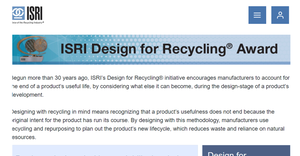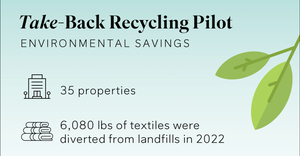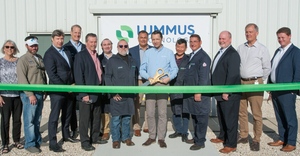SERDC, RRS and U.S. EPA Region 4 have joined to provide evaluation tools that consider how to manage and recycle solid waste effectively.
In the face of market uncertainties—including the evolving waste stream, commodity pricing and bans on commodity imports—solid waste and recycling program managers are faced with hard questions and program considerations.
“The current complexity of logistics for recycling and disposal has grown exponentially,” said Will Sagar, Southeast Recycling Development Council (SERDC) executive director, in a statement. “The myriad of management options the public works director faces today are difficult to navigate and multifaceted when justifying a program expenditure to an elected board of decision makers.”
SERDC and the U.S. Environmental Protection Agency (EPA) Region 4 have identified the need to develop integrated solid waste management (ISWM) evaluation tools that consider how to manage and recycle solid waste in ways that are most effective and economically sound.
The collaboration helped inform EPA Region 4 and RRS in the creation of two tools to assist local governments in the Southeast to analyze their recycling programs. The tools use assumptions based on national and regionalized data and are meant to provide insight and direction for further community-specific research and planning.
“These tools will set community leaders on the path toward identifying the right solutions for their local conditions and the ability to communicate the findings to key stakeholders including elected officials, finance departments, city managers and residents,” added Sagar.
“An Introduction to Funding and Accounting” is a guide to assist local governments with analyzing and maximizing their solid waste systems to identify, collect, track and analyze costs associated with their services. The tool helps solid waste/recycling personnel and their elected leadership ask appropriate questions and introduces methods of funding to assist in optimizing their community program based on local conditions.
The “Recycling Program Scenario Model” is an Excel-based model that uses community-specific data (e.g., location, number of households, participation level, etc.) to calculate estimates for various recycling program scenarios including collection types, hub and spoke models and more.
U.S. EPA Region 4 is hosting a free two-part webinar series, “Making the Case for Recycling 101 & 201,” on September 13 at 2 p.m. ET and September 26 at the same time that will feature the tools and guest speakers sharing real-world experiences on making the case for recycling for decision-makers and elected officials.
EPA Region 4 is also offering a half-day interactive workshop during the SERDC Summit on November 12 for state and local government representatives, county and district leaders, solid waste directors, recycling managers and coordinators, SRO directors and others to learn how to make the case for recycling in their communities.
About the Author(s)
You May Also Like


